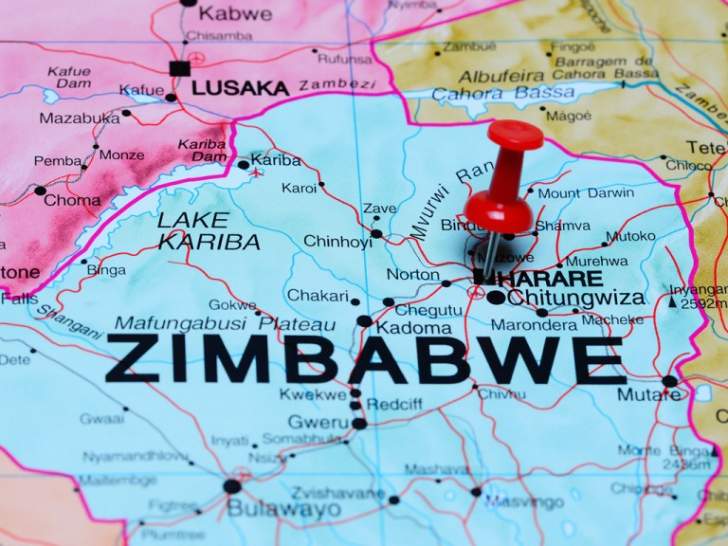The relatively small size of Zimbabwe’s population combined with a very low internet penetration rate means that there is a limit to how much an online business can grow in the country. If you own or run such a business and its growth rate has hit rock bottom or is even now going in the opposite direction, there is precious little you can do besides expanding your operations to outside the country. Whether your online venture takes the form of a blog, an online store or a web app, increasing its geographical reach would bring you closer to unlocking its full potential. Fortunately, for an online business, expanding to another country doesn’t need to be as difficult as establishing an actual physical branch or a subsidiary. Here are a few tips on how you can go about your expansion.
Recruit representatives/consultants in other countries
One of the simplest and cheapest ways of implementing your expansion efforts into another country is hiring a representative, preferably a legal citizen or registered business, based in said country. Cultures, interests and social attitudes vary wildly across even neighbouring countries; the ideal representative should therefore also double as your consultant on anything to do with their country of residence. For instance, I have not the faintest idea what the most popular music genre in Zambia is or what the state of eCommerce is that side. It is tempting to think that an online search can answer your questions but in many cases, the people who write online content on any given subject tend to be relentlessly optimistic (obviously excluded here are art and politics critics).
You should choose a representative who is most appropriate for your business and budget. Attributes you can consider include interests, experience, fluency in local languages and academic qualifications. Depending on the nature of your business, an actual registered business may serve you better as a country representative.
For an online business, the representative will play the role of an agent or proxy more than anything else. You must, however, keep in mind that there are usually legal limitations to this kind of arrangement—you may end up inadvertently laundering money. Also always do your best to thoroughly vet any prospective hiree, especially a remote one.
Use international online payment platforms
Paypal is possibly the most popular and largest of all online payments platforms. It and others like it (e.g. Stripe) have users all over the world. Opening a merchant account with at least one of these platforms is a good idea if you intend to accept payments from customers in other countries. Indeed, simply accepting Paypal payment is the simplest and most straightforward way for you to start getting paid for your products and services by customers outside Zimbabwe.
Accept international Visa and Mastercard payments
You can also accept direct credit and debit card payments from VISA and Mastercard holders. In Zimbabwe, you can receive such payments, both local and international, using a platform like PayNow. Paynow requires that your business be registered to be eligible to receive these payments. You must, however, beware that people are often reluctant to enter their card details onto platforms that they are not familiar with; even Paynow is unfamiliar to someone in Botswana.
Embrace local payment channels
While Paypal, Visa and Mastercard are available to people all over the world, their usage in any individual country, especially those in Africa, is very low. For instance, in Zimbabwe, we have our OneMoney, Ecocash and Zimswitch (Vpayments) all of which are far more accessible to locals. Therefore any online business which specifically targets the country but neglects to consider this will be setting itself up for failure. The same is true for countries like Zambia, South Africa and Botswana. You must therefore find a way to accept payment using the channels most accessible to the customers in your target country and the easiest way to do this is usually through the local online payment platforms. Remember that as a foreign company or individual, you might need to jump through a few hoops to get signed up.
Register a .com domain
As a Zimbabwean online shopper, you will know that you are lost if you find yourself at a site with a domain ending with a “.co.bw” or “.co.zm”. Similarly, a lot of surfers from those two countries (Zambia and Botswana) will suspect the same if they find themselves on your “.co.zw” online shop. To avoid visitors and potential customers from clicking away from your site after a glance at your web address, simply register a dot com domain. This will reassure visitors that your site is not country-specific and will also increase the likelihood of it getting clicks in search results.
Register country-specific domains
An even better alternative to the above approach is to either build several country-specific websites or just register country domains which redirect back to your main (preferably .com) site. Visitors are likely to stay longer if an unfamiliar site, whether it’s a news blog or an online store, appears relevant to their country.
Collaborate with creators and influencers in the target country
Besides advertising via Google and Facebook, you can also promote your online business in new markets by collaborating with local influencers and by “collaborating” I mean pay them to help spread the word about your products and services. If what you do is interesting enough, you can also leverage local blogs which are relevant to your business in the target country—unless your “business” is also a blog that is—for free promotion.








